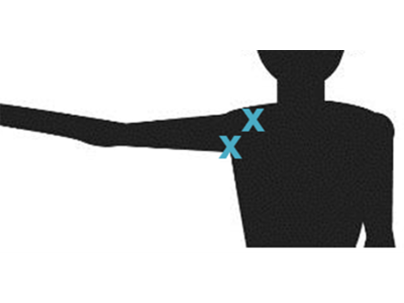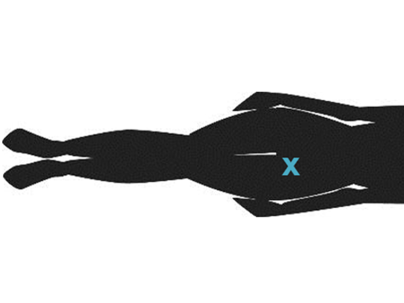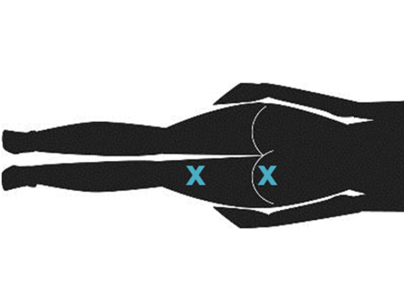Nerve blocks
A peripheral nerve block (PNB) is used to control pain. A PNB may be used with sedation (relaxing medication) or with a general anesthetic (fully asleep).
What to expect
Nerve blocks are done by an anesthesiologist (specialist doctor), usually in the preoperative area prior to surgery but can be done in the operating room or after surgery in the recovery area.
The procedure involves an injection of local anesthetic (freezing) medication near nerves to numb an area of the body. Nerves are found using an ultrasound sensor. After cleaning and numbing the skin, the nerve block medication is given through a needle guided by the image on the ultrasound screen.
You may feel tingling or ‘pins and needles’ sensation as the frozen area becomes more numb. Your limb will feel weak and you may not be able to move it.
The freezing should last for six to 24 hours depending on the type of local anesthetic used. Your anesthesiologist will notify you when to expect normal feeling to return.
If your surgery is being done without general anesthetic, your anesthesiologist will provide you with the right amount of sedation in the operating room. Patients often fall asleep with sedation while breathing on their own, whereas general anesthesia requires temporary ventilator-assisted breathing (breathing machine). We will confirm that your nerve block is working so that you do not feel pain before starting surgery.
Benefits of nerve blocks
If you have a nerve block for surgery and can avoid a general anesthetic, you will have better pain relief immediately after surgery, less nausea and sore throat and a shorter anesthetic recovery time. You may also be able to go home sooner.
Nerve blocks are generally considered safer than general anesthesia for surgical patients with certain heart conditions, lung disease, or elderly patients.
Risks
Risks of a nerve block
Peripheral nerve blocks are generally safe. You may notice a temporary bruise where the injection was done. Some patients will experience numbness or tingling in the limb after the nerve block has worn off. This usually resolves in a few days.
Serious problems are rare, but can include infection, bleeding, nerve injury, drug toxicity and allergic reactions. You will be monitored closely for any adverse reactions.
Risks of general anesthesia
General anesthesia is also generally safe. Common side effects include nausea, vomiting, confusion and sore throat. Serious problems are rare, but can include allergic reactions, very low blood pressure, awareness during an anesthetic, loss of vision, aspiration and death.
In the absence of a nerve block, pain medication may be used and this can have side effects including a decreased drive to breathe, nausea, itchiness, confusion and constipation.
Nerve blocks for limb surgery
The limb that is frozen can feel heavy and you may not be able to move it. This is normal. The local anesthetic also affects the nerves that control movement. As the local anesthetic wears off, you will be able to move your limb.
Do not do any activities that require coordination or strength, such as drive a car, operate machinery, cycle, etc. until normal sensation and movement of your limb have returned. Ask your surgeon about any restrictions to limb movement relating to your operation and recovery.
-
Upper limb nerve blocks
Surgery to the shoulder, upper arm, lower arm, elbow, wrist or hand can be done using a block to the bundle of nerves known as the brachial plexus.
The local anesthetic will be injected near your neck, collarbone or armpit. During the time the block is working, you will not be fully aware of the position of your arm so it is important to keep your arm supported by wearing a sling or resting it on a pillow to avoid any injury.
-
Lower limb nerve blocks
Surgery to the lower limb, including the hip, upper leg, knee, lower leg, ankle, or foot, can cause weakness in your leg. It is important to not place weight on your leg until you can feel your leg, as the weakness may cause you to fall or accidentally injure your leg without knowing it.
A femoral nerve block can be used to provide pain relief or numbness in the knee or front of leg. The local anesthetic will be injected in your groin or hip area.A sciatic nerve block can be used to provide pain relief or numbness in the lower or back of leg. The local anesthetic will be injected in the back of your leg.
Your anesthesiologist will discuss the best location for your nerve block with you on the day of surgery.
Care after your nerve block
Be careful around heat sources such as stoves, ovens or radiators. You will not feel heat while your limb is numb and you could burn yourself.
Do not place heat or use a heating pad over the area affected by your peripheral nerve block as you may not feel if the heat is too hot and this may cause a burn.
If instructed to use ice:
- Do not leave ice on for more than 15 minutes as it could damage the skin and the underlying tissues.
- Do not place ice directly on skin. Wrap ice in a towel or cloth.
Be careful not to lean on your arm or leg as you will not be aware if you are causing injury to the nerves or muscles in your limb while it is numb.
What happens when the peripheral nerve block wears off?
When the nerve block begins to wear off, you may experience a tingling or ‘pins and needles’ sensation to the affected area. As soon as you begin to feel tingling or discomfort you should start taking your pain medication as directed. Start taking pain medication before the freezing wears off completely, to prevent your pain from becoming severe.
If the peripheral nerve block has not worn off yet and you are going to bed, take your pain medication before you go to sleep to prevent waking up in pain. You may want to set an alarm to take pain medications throughout the night and avoid missing a dose within the first 24 hours.
Your surgeon will advise on which medications you can take for pain following surgery. Acetaminophen should be taken regularly (every four to six hours) unless your surgeon has prescribed an opioid medication containing acetaminophen like Tramacet or Tylenol #3. Anti-inflammatories like ibuprofen and celecoxib can be taken regularly as well for the first 48 hours following surgery, unless your surgeon has indicated otherwise, or you have an allergy, severe kidney dysfunction or Peptic ulcer disease.
If you need additional guidance on taking pain medication, you can call 8-1-1 and speak to a nurse or pharmacist.
Do you think you suffered a nerve injury?
Nerve block complications are exceedingly rare. If you think that you suffered a nerve injury resulting in persistent weakness, numbness or loss of function (that is not related to your surgery), the best person to speak with first is your surgeon. Your surgeon will be able to determine if the symptoms are an expected result of surgery or prior injury. If relevant, your surgeon will speak with your anesthesiologist who will then contact you directly for more details.
In these extremely rare situations, you may be asked to see a neurologist doctor who may perform specialized testing on the nerve(s).
When to notify the surgeon or go to the Emergency Department
Notify the surgeon* or go to the Emergency Department if:
- You have a return of numbness or inability to move after the feeling and movement had returned to normal.
- You have increasing numbness or decreasing movement of the affected area.
- Movement does not return to normal by 48 hours after surgery.
- You develop redness, swelling or discharge at the peripheral nerve block insertion site. Note that the cleaning solution used for the nerve block leaves a pinkish stain.
- You have severe pain that persists for hours after taking pain medications and are not coping at home. Pain after surgery can occasionally be severe but should get better over time.
- *Note that surgeons’ offices are typically only open during regular business hours.
If You Have Any Concerns About Your Peripheral Nerve Block Call:
- If your surgery was performed at the Vancouver General Hospital (VGH) call 604-875-4111 and ask to speak to the Anesthesiologist on duty for the Perioperative Pain Service. This is a 24 hours a day, seven days a week service.
- If your surgery was performed at UBC Hospital, call the UBC Anesthesia Department during the day at 604-875-4304. After 5:00 pm, call the VGH number.





